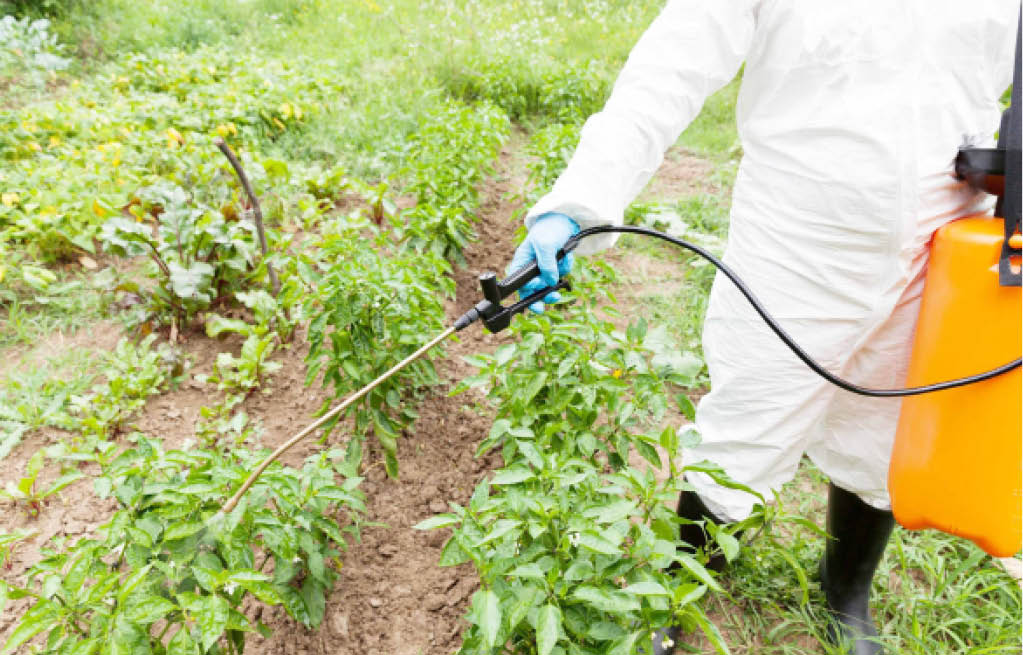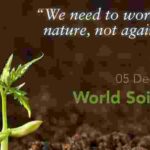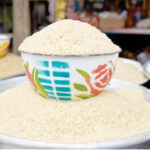The English playwright Christopher Marlowe is largely credited with popularising the Latin phrase “quod me nutrit, me destruit,” which translates as that which nourishes me, destroys me. Often, people think of this maxim in abstract terms, like the things one craves or desires, or concepts like love that lead to doom. It is however not often that people think of this in terms of the food that they eat, except for the 385 million people who experience food poisoning every year. In most of these cases, pesticide is considered a major cause of this silent menace.
My focus on this pestilence does not include those who somehow, by cunning design or sincere accident, end up with harmful chemicals in their food, like that family in Sokoto that mistook gishirin lalle (a fertilizer product) for actual salt, used it in food preparation and lost 22 members in one night.
In Nigeria, it is not uncommon to wake up to news of whole families being wiped out overnight from eating contaminated or pesticide-laced food. Just last November, 11 family members in Ikobi of Apa Local Government Area of Benue State died from eating food that is thought to be contaminated. Newspaper reports said the case is being investigated. If the investigation has been concluded, I have not heard of it.
While pesticides are meant to help farmers protect and nourish their crops, while targeting and killing the insects that feast off these crops, regrettably, these pesticides often lead to the deaths of people, in ones or twos, sometimes in tens and dozens. When this happens, the cases are often reported, investigations are often proclaimed by some grief-stricken authority figure, but the findings of those investigations are far too often not made public, which means that the culprit harmful chemicals are not made known, the public are not made aware of the danger and the responsible parties are not made to desist and, where necessary, sanctions imposed.
This is often because the law is perhaps too lax. So lax in fact that over 48 per cent of the registered pesticide products in Nigeria have active ingredients that are banned in Europe and other countries mostly because of their harmful effects on humans, crops and the environment. While these products may be banned in Europe, this ban does not include a ban on the production and export of these harmful pesticides which are then shipped to countries with lax legislations like Nigeria, to be used by farmers who do not know any better.
The irony is that the EU food safety authority has banned the importation of certain Nigerian food products for containing the same harmful pesticides European countries exported into Nigeria. In 2015, for instance, Nigerian beans was banned from the EU for containing 0.3mg per kg and 4.6mg per kg of Dichlorvos pesticide. The maximum residue limit allowed is 0.01 mg per kg. Dichlorvos, which has been banned in the EU since 1988, is known to cause difficulty in breathing, diarrhoea, vomiting, convulsions and dizziness among others. Somehow, the Nigerian authorities have continued to allow the importation of the harmful chemical and its application on our agricultural produce which we cannot sell to the same countries who sold us these chemicals. The irony!
However, diarrhoea and vomiting and other undesirables are not the worst of the effects of these chemicals. Data from the Heinrich Boll Foundation, which has been doing outstanding research and work in this area, shows that 7 of 13 active ingredients used by a group of women farmers surveyed are cancerogenic. In layman’s terms, they are capable of causing cancer. Already, cancer is becoming more prevalent with 102,000 new cases recorded annually and an annual mortality rate of 72,000 deaths. When taken in consideration with the high prevalence of kidney disease, which is often caused by pesticide-active ingredients like Paraquat and Butachlor, the concept of what nourishes me destroys me is seen in a whole new light, or rather a whole new shadow. Overall, a 2018 study by a Nigerian scholar, Jane Ezirgwe, claims that some 200,000 Nigerians die annually from food-borne diseases with an attendant economic burden of $3.6 billion. That is just too many people to lose and too much money to waste.
We should be worried. The Nigerian authorities need to be very proactive in fighting this war. The largely chaotic approach to boosting food production in the country, which essentially entailed urging people to go to farmlands that are often unsafe due to marauding kidnappers and raiding bandits, needs to be more strategic and deliberate. Diversifying the economy to boost the 22 per cent agricultural contribution to the GDP must be measured and must safeguard lives. While government efforts have focused on increasing productivity, it must refocus to ensure that the produce are fit for human consumption and export. If this is not already a priority agenda for the new minister of agriculture, Senator Abubakar Kyari, then it should be.
I know concerned bodies like the Henrich Boll Foundation have been putting a lot of efforts and resources into creating awareness and changing legislation around pesticide use in Nigeria with its most recent report, Pesticide Atlas, claiming that Nigeria is spending $384 million annually to import its poison of choice—pesticides- making it the largest importer of the product on the continent with 80 per cent of these imported pesticides used by small-scale farmers being highly hazardous.
These efforts and campaigns though are not enough. The Nigerian government needs to do more and legislators, especially those in relevant supervisory committees, have to ensure that appropriate legislations to cut down on these importations are imposed and monitored diligently.
While every country has its particular food challenge, like America eating itself into a couch potato, Nigeria seems intent on poisoning itself through a mixture of pesticide and regulatory nonchalance. It needs to stop and it needs to stop now. Whatever the ministry of agriculture and the relevant agencies do to contain this malaise, it must go beyond presentations of white papers to actual tangible actions. You can’t boost your GDP if your produce can’t be exported and your people have to eat it and die because of a lack of choice, or not knowing better. If what is nourishing us is destroying us, then we must find ways to make what is destroying us nourish us.

 Join Daily Trust WhatsApp Community For Quick Access To News and Happenings Around You.
Join Daily Trust WhatsApp Community For Quick Access To News and Happenings Around You.


